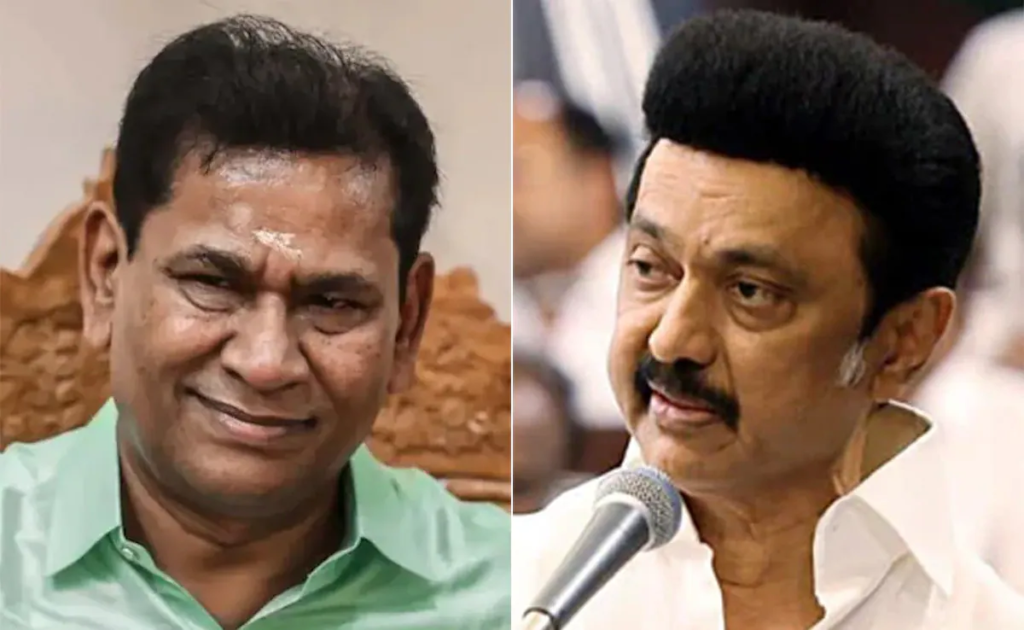Transparency Over Donations
Transparency-In a recent turn of events in Tamil Nadu’s political landscape, the ruling Dravida Munnetra Kazhagam (DMK) has found itself under the scrutiny of its arch-rival, the All India Anna Dravida Munnetra Kazhagam (AIADMK), regarding donations received through electoral bonds. The issue has sparked a heated debate, with accusations flying from both sides. The DMK, led by Chief Minister MK Stalin, has staunchly defended its position, emphasizing transparency and denying any concessions made in exchange for donations.

Transparency-The controversy arose when data released by the Election Commission of India revealed that Future Gaming and Hotel Services, a major donor through electoral bonds, had contributed ₹509 crore to the DMK. The company’s owner, Santiago Martin, popularly known as the “lottery king,” has been under investigation by the Enforcement Directorate. AIADMK wasted no time in launching a scathing attack on the DMK, led by Edappadi K Palaniswami, the Leader of the Opposition in the Tamil Nadu Assembly.
Transparency-Palaniswami accused the DMK government of hypocrisy, citing its enactment of a law against online gaming while accepting donations from a gaming company. He characterized the move as a betrayal of the people’s trust, insinuating a connection between the donations and the government’s policies. However, DMK MP TR Baalu swiftly refuted these allegations, asserting that the law against online gaming was enacted without any concessions to the gaming company. Baalu pointed out that it was the Governor who initially delayed assenting to the law, necessitating its re-enactment.
The timeline of events surrounding the legislation against online gaming further supports DMK’s stance. While the AIADMK government had introduced a law to ban online gambling in 2021, it was later struck down by the Madras High Court. Upon assuming power in 2022, the MK Stalin government formed a committee to review the issue, demonstrating its commitment to addressing concerns surrounding online gaming. Subsequently, a new bill was drafted based on the committee’s recommendations and eventually received assent after overcoming initial hurdles.
Baalu also retaliated by questioning Palaniswami’s silence on the issue of donations received by the Bharatiya Janata Party (BJP) amid allegations of extortion. He highlighted the hypocrisy in AIADMK’s criticism, pointing out that several companies facing scrutiny by the Enforcement Directorate had donated significant sums to the BJP. Baalu challenged Palaniswami to condemn such practices, questioning the former chief minister’s integrity in light of his association with the BJP.
The electoral bonds controversy has reignited political tensions in Tamil Nadu, with both the DMK and AIADMK trading accusations amidst growing public scrutiny. The revelation that the BJP received a substantial amount through electoral bonds has further fueled the debate. DMK chief MK Stalin has condemned the use of electoral bonds, labeling them as a tool for facilitating “white-collar corruption.” Similarly, senior Congress leader P Chidambaram has criticized the BJP, alleging that the funds received through electoral bonds were obtained through extortion rather than legitimate donations.
However, BJP leaders have vehemently defended their position, arguing that despite receiving donations, they have pursued legal action against those implicated in financial irregularities. Finance Minister Nirmala Sitharaman emphasized the government’s commitment to upholding transparency and accountability, asserting that appropriate measures were taken to address any wrongdoing. State BJP chief K Annamalai pointed out that the BJP’s share of donations, when compared to its representation in state governments, was proportionally lower than that of the DMK in Tamil Nadu.
The ongoing debate surrounding electoral bonds underscores the broader issue of transparency and accountability in political funding. While political parties are required to disclose their sources of funding, the use of electoral bonds has raised concerns about potential loopholes and the influence of vested interests. The contentious nature of electoral bonds has prompted calls for greater transparency and stricter regulations to ensure the integrity of the electoral process.
In conclusion, the DMK’s response to the allegations raised by the AIADMK regarding donations received through electoral bonds underscores its commitment to transparency and accountability. Despite facing criticism, the DMK has vehemently denied any wrongdoing and emphasized that donations were received in accordance with legal requirements. However, the controversy surrounding electoral bonds highlights the need for comprehensive reforms to address the systemic issues plaguing political funding in India.
